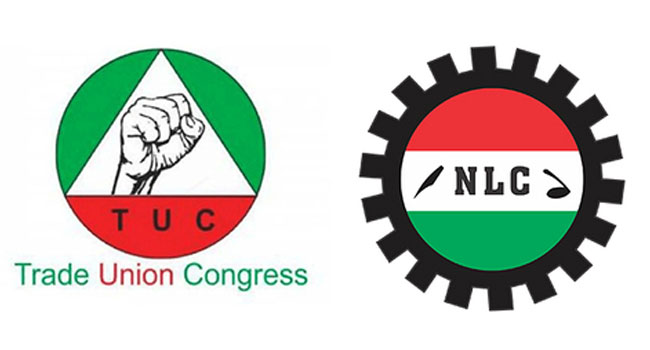A massive strike in Nigeria led to the temporary suspension of airline services and a blackout on Monday as unionists stormed the electricity supply corporation in Nigeria and cut off the lights, the Transmission Company of Nigeria (TCN) said.
Currently, tens of millions are left without electricity, and flights have experienced disruptions due to the prolonged strike by the Nigerian Labour Congress (NLC) and the Trade Union Congress (TUC).
It added that operators from TCN were beaten and injured, and that the invasion saw the forceful eviction of the operators from control rooms. Photos, including those shared on social media on Monday, also captured cane-wielding union workers ejecting personnel of the country’s tax agency from their offices.
This strike was sparked over the poor negotiations with the government over the federal minimum wage increase. They are also demonstrating against an increase in tariffs for electrical energy that has been implemented recently.
They also seek to have an increase in the minimum wage from 30,000 naira ($22. 4) to 494,000 naira ($369.6). Presidential aide Bayo Onanuga described these demands as “unreasonable,” in the post on the social media portal X.
Recall that the government had offered to increase the amount to 60,000 Naira from 30,000 Naira, an offer which was rejected by the unions who wanted an increase to the tune of 1,547%. Onanuga said this.
Ironically, Nigeria which is the fourth-largest economy in Africa still provides its workers with a minimum wage that does not put it among the top ten countries in Africa; employers in Seychelles for instance pay their employees a minimum wage of $465.4 monthly.
The strike has dealt a major blow to the travelling schedules of passengers, with many stranded at major airports in both Lagos and Abuja. Industries such as the healthcare services have also not been spared by the crisis.
“I’m worried because the state of the healthcare system is on the verge of collapse,” he said, adding that his medical facility located in southwest Nigeria was unable to power crucial hospital equipment due to the shutdown of the national grid.” Nigerian doctor, Olusina Ajidahun said.
“Coming in the morning, the emergency (unit) and everywhere was dark. Patients and healthcare workers were all in darkness.”
The event has stirred up various responses from Nigerians on the social media platform; some affirm their support to it, while others consider it as being unfavourable to the citizens.


